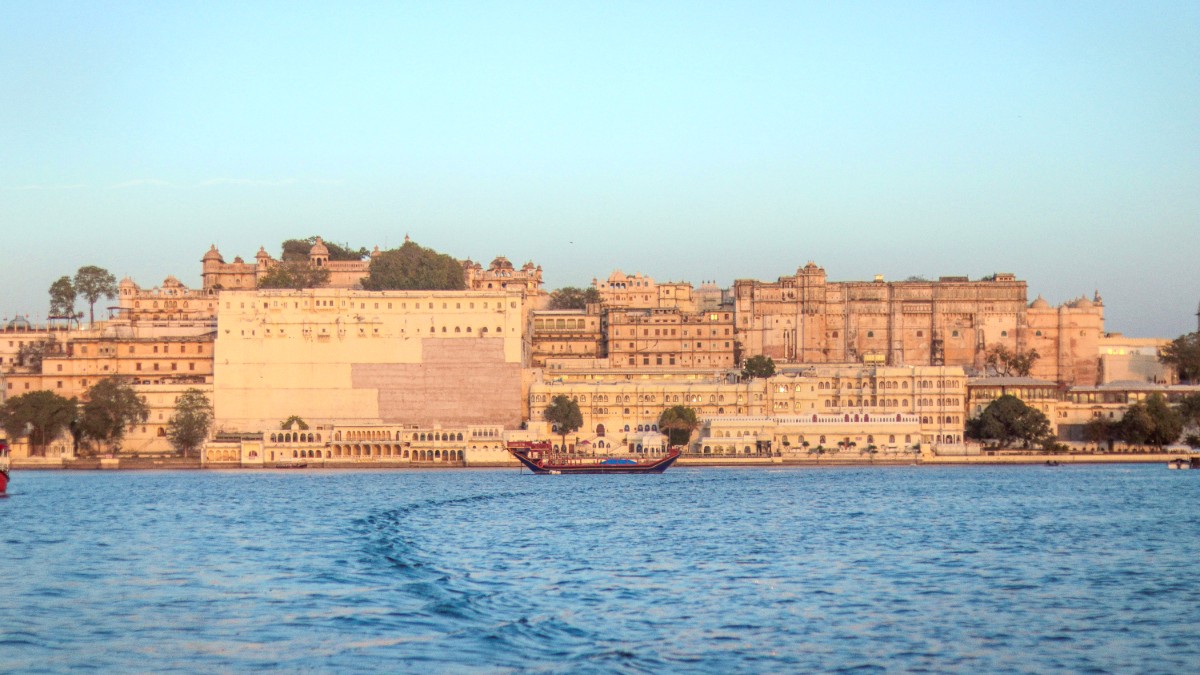
Rajasthan, India
Udaipur's climate varies across three main seasons: winter, summer, and monsoon. Each brings an unique set of weather conditions.
Winter (October to March) offers pleasant, cool, and dry weather with minimal to no rainfall. Summer (April to June) is hot and dry, with high temperatures. Monsoon (July to September) brings humidity and moderate to heavy rainfall.
Monsoons in July and August receive the most rainfall. While the rains rejuvenate the lakes and landscape, heavy downpours can lead to temporary disruptions, waterlogged streets, and limited visibility. Carry waterproof gear.
Extreme heat during summer months, notably May and June, brings heat risks. Precautions like staying hydrated, wearing light clothing, and avoiding midday sun are important. Winter nights can be quite chilly, requiring warm clothing, especially for evening activities.
Peak Tourist Season
Ideal weather, cool, clear skies. All attractions operate fully.
Higher prices, larger crowds. Booking well in advance is necessary.
Transition Months
Fewer crowds, potentially lower prices. Opportunity to visit before extreme heat or heavy rains.
April and May are very hot. Late September may still have residual humidity.
Monsoon & Summer Heat
Significantly lower prices. Fewer tourists, a more relaxed experience. Lush green landscapes.
June is very hot and humid. Heavy rainfall can disrupt travel and limit activities.
October to March offer pleasant weather for exploring palaces, forts, and enjoying lake cruises.
November to February grant the coolest and driest months for activities outside the city, like hiking in the Aravalli hills.
Typically occurs in March or April.
Usually happens in December.
Festival of Colors, typically in March.
Festival of Lights, typically in October/November.
Plan your visit to coincide with these events to experience local celebrations.
Travel to India requires understanding its visa and entry regulations. These procedures vary based on your nationality and the purpose of your visit.
Most foreign nationals need a visa to enter India. The Indian government offers several visa types, with the e-Visa being the most common and convenient for tourists.
Gathering the correct documents before applying for your visa and before travel forms an important step.
Managing your finances forms a part of travel planning.
Costs in Udaipur can vary widely depending on your travel style and preferences.
Here is an approximate daily cost breakdown for different traveler types in Udaipur. These estimates do not include international flights.
Budget traveler daily costs for hostels, street food, and public transport generally range from ₹1050 - ₹2500 (approx. $13-$30 USD).
Price per night varies widely. Hostel dorm beds are typically ₹400-₹800, while luxury hotels can be ₹8000+.
Budget Guesthouse/Hotel: ₹800 - ₹2000
Mid-range/Heritage Hotel: ₹2000 - ₹7000
Dining expenses depend on your preference, from street food to fine dining.
Street Food Snack: ₹50 - ₹150; Basic Thali: ₹150 - ₹300
Mid-range Restaurant Meal: ₹300 - ₹700; Fine Dining: ₹800 - ₹2000+
Local transport like auto-rickshaws are affordable for short distances.
Auto-rickshaw (short ride): ₹50 - ₹150; Ola/Uber (short ride): ₹80 - ₹200
Full-day private car with driver: ₹1500 - ₹3000
| Attraction | Category | Foreigner Entry Fee |
|---|---|---|
| City Palace Museum | Palace/Museum | ₹300 - ₹400 |
| Jagdish Temple | Temple | Free |
| Saheliyon-ki-Bari | Garden | ₹50 - ₹100 |
A comprehensive approach to health and safety contributes significantly to a worry-free journey in Udaipur.
If arriving from or transiting through a risk country, a valid certificate is mandatory.
Ensure Measles, Mumps, Rubella (MMR), Diphtheria-Tetanus-Pertussis, Polio are up to date.
These are common and transmitted via contaminated food or water.
Traveler's Diarrhea
Follow the rule: "Boil it, cook it, peel it, or forget it." Avoid tap water, ice, unpasteurized dairy, and raw fruits or vegetables unless peeled. Eat hot, freshly cooked food. Wash hands frequently. Carry anti-diarrhea medication and oral rehydration salts (ORS).
Mosquito-borne diseases like Dengue Fever and Malaria are prevalent, especially during monsoon. Use insect repellent containing DEET or Picaridin. Wear long-sleeved clothing at dawn and dusk. Sleep under a mosquito net.
Heatstroke and dehydration are risks during summer. Stay hydrated, avoid peak sun hours, wear light clothing and a wide-brimmed hat. Consider a face mask for air pollution if sensitive.
Udaipur has several private hospitals with modern facilities and English-speaking doctors (e.g., GBH American Hospital, Pacific Hospital).
Easily accessible throughout the city; many medications are available over-the-counter.
Ambulance: Dial 102; Police: Dial 100; General Emergency: Dial 112 (all-in-one).
Udaipur is generally a safe city for tourists. Violent crime against tourists is rare.
Do NOT drink tap water in Udaipur. Use sealed bottled water (always check for an intact seal). Alternatively, use filtered water provided by reputable hotels or restaurants, or boil water yourself. Carry a reusable water bottle and consider a portable water filter or purification tablets.
Eat at reputable establishments with good hygiene standards and high customer turnover (meaning food is fresh).
Avoid raw salads, unpeeled fruits, and uncooked dairy products. Ensure all food is served hot and cooked thoroughly.
Be cautious with street food. Observe where locals eat and prioritize vendors who cook food fresh in front of you.